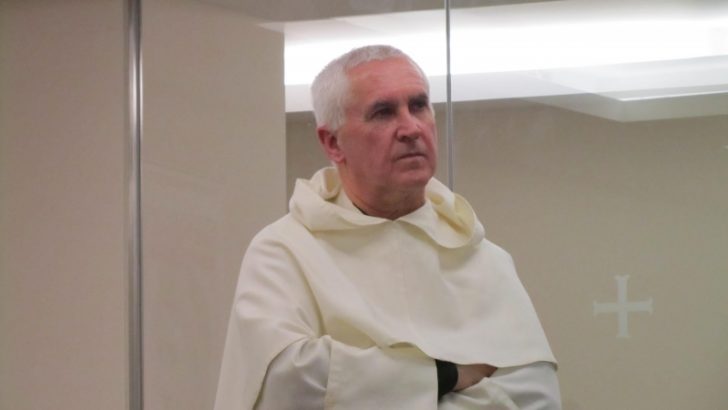Francis Derangement Syndrome hit a new low over the last fortnight, with the publication of a preposterous open letter from a handful of Catholics calling on bishops to “address the situation of Pope Francis’ public adherence to heresy”.
Published on the ever-untrustworthy lifesitenews.com with the tagline ‘Prominent clergy, scholars accuse Pope Francis of heresy in open letter’, it is hard not to sympathise with Michael Sean Winters of America’s ncronline.org when he says: “I think all the names but one, Dominican Fr Aidan Nichols, are more accurately described as obscure.”
“Later,” he continues of the report’s reference to the scholars as “well-respected”, “I think Fr Nichols was respected. After this foray into ecclesial politics, perhaps not so much.”
Winters’ analysis is patchy at best, but he’s surely right to describe the letters’ authors claims as assertions, rather than statements of indisputable fact. “It takes a particular interpretation of the Catholic tradition and makes an idol of it, insisting that it and it alone is the only valid interpretation,” he writes.
Better readings
Jimmy Akin and Ed Condon offer rather better readings in ‘On charging a Pope with heresy’ at ncregister.com and ‘Analysis: serious and unserious allegations of papal heresy’ at catholicnewsagency.com.
“If you are going to charge anybody with heresy – but especially if you are going to charge a Pope with it – you need to prove your case, and this letter doesn’t,” writes Akin, clearly mapping out how the case laid out in the open letter fails in a number of ways, not least by failing to show that Pope Francis obstinately doubts or denies dogmas.
“One of the requirements for doing this is showing that his statements or actions cannot be understood in another sense. If they can be understood consistently with dogma then the obligation of charity –and Pope Benedict’s ‘hermeneutic of continuity’ – requires that they be taken this way,” he writes, before pointing out that relevant statements in the letter have already been shown by Cardinal Gerhard Müller as being possible to read in harmony with Church teaching.
“You can’t make a successful charge of heresy as long as this is the case,” he points out.
Condon, meanwhile, observes that “despite the letter’s strident claims, the arguments advanced by its authors do not appear to make a legal, or consistent, argument against the Holy Father regarding the specific charge of canonical heresy”.
Although the letter’s authors claim the Pontiff has committed the “canonical delict of heresy”, Condon says they “appear unable to distinguish between the crime of heresy and what their letter actually appears to allege – material heresy”.
Even Fr Thomas Weinandy, who has previously written to the Holy Father, declaring his papacy marked by “chronic confusion”, has criticised the letter in firstthings.com as being “extreme in its appraisal and intemperate in its approach”.
Confusion, presumptuousness and arrogant accusations may be par for the course for some of the letter’s authors, but Fr Nichols’ involvement may seem to give the affair a hint of gravitas. Venerable reputation, sadly, offer no guarantee against theologians going off the rails, as Henry Karlson spells out in ‘Being a prominent scholar or theologian does not give one authority to denounce the Pope’ at patheos.com/blogs/henrykarlson.
Some, of course, will point out that Fr Nichols has form for criticising Pope Francis, but as Mike Lewis writes at wherepeteris.com, this new letter is no simple request – or demand – for clarity, that watchword of the Pope’s antagonists over recent years.
“This letter makes specific claims about Pope Francis, and it requests the bishops of the world to take specific actions, with an explicit purpose,” he writes, directly addressing those who would excuse the letter even if they do not wholeheartedly back it. “If you are going to defend the letter, do so with a clear understanding of what you defend. The authors are stating that Francis is no longer Pope, and are asking the bishops of the world to confirm this in an official declaration.”


 Greg Daly
Greg Daly Fr Aidan Nichols
Credit: FSSPX.News
Fr Aidan Nichols
Credit: FSSPX.News